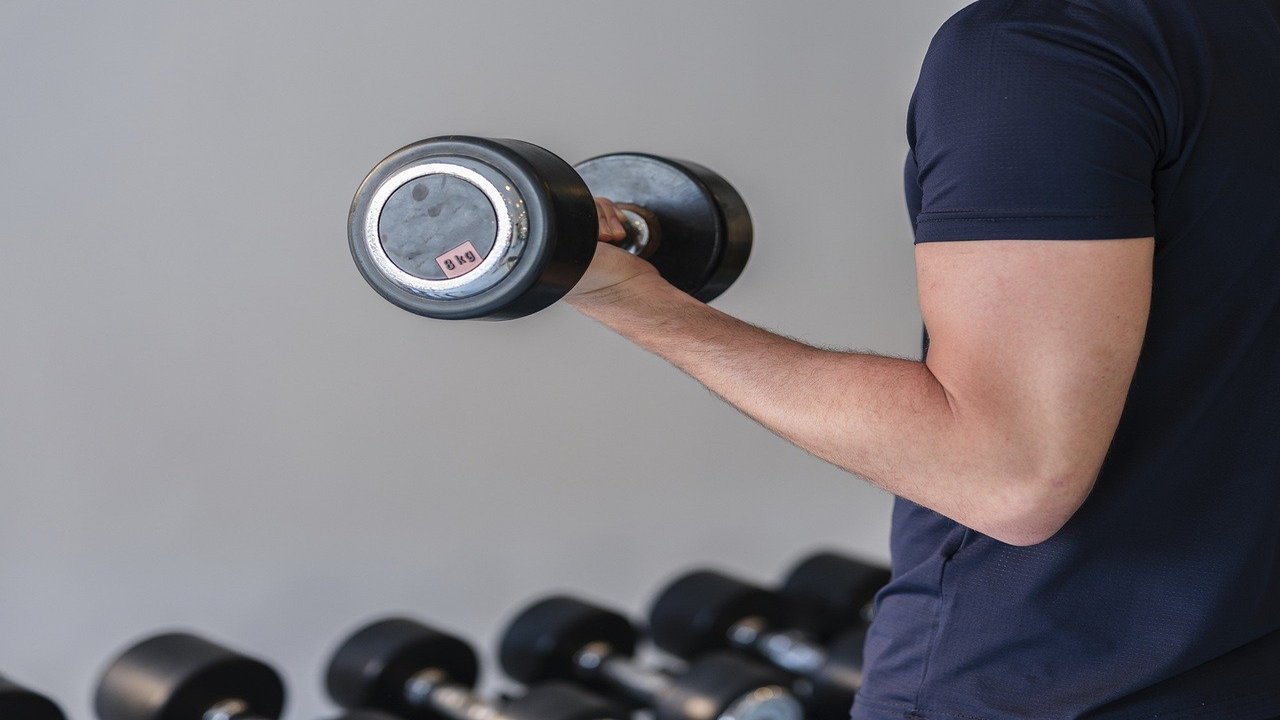
Do you ever feel like a car running on empty? Just as fueling up your vehicle at the right times can make it run more efficiently, timing your nutrient intake can supercharge your performance and expedite your recovery.
Understanding how to strategically fuel your body can make a significant difference in your athletic endeavors. Whether you're an endurance athlete aiming to go the extra mile or a weightlifter looking to maximize muscle growth, nutrient timing can play a crucial role in your success.
By harnessing the power of nutrient timing, you can optimize your performance and recovery to reach new heights in your fitness journey.
Key Takeaways
- Consuming the right nutrients at the right time enhances athletic abilities and endurance.
- Pre-workout nutrition provides energy for exercise and optimizes glycogen stores.
- Post-exercise fueling replenishes glycogen stores, repairs muscle tissue, and promotes recovery.
- Timing nutrient intake within 30 minutes to an hour after a workout aids in muscle repair and growth and supports optimal recovery.
To optimize your performance, consuming the right nutrients at the right time can significantly enhance your athletic abilities and endurance. Pre-workout nutrition plays a crucial role in providing the energy necessary for your exercise sessions. Consuming a balanced meal or snack about 1-3 hours before your workout can ensure that your body has an adequate fuel supply to perform optimally. This can include a combination of carbohydrates and protein to provide sustained energy and support muscle function.
Additionally, post-exercise fueling is essential for replenishing glycogen stores, repairing muscle tissue, and promoting recovery. Consuming a mix of carbohydrates and protein within 30 minutes to 2 hours after your workout can aid in muscle repair and growth while restoring energy levels.

Proper nutrient timing before and after exercise can maximize your performance and accelerate recovery.
Nutrient Timing for Recovery Optimization
Optimize your recovery by strategically timing your nutrient intake after exercise, ensuring that your body receives the essential fuel and building blocks it needs for muscle repair and replenishment.
Pre-workout fueling plays a crucial role in preparing your body for physical activity by providing the energy necessary to perform at your best. Consuming a balanced meal or snack containing carbohydrates and a moderate amount of protein approximately 1-3 hours before a workout can help top off your energy stores and enhance performance.
Post-exercise replenishment is equally important, as it aids in muscle recovery and glycogen restoration. Consuming a combination of carbohydrates and protein within 30 minutes to an hour after exercise can promote optimal recovery by replenishing energy stores and providing the nutrients needed for muscle repair and growth.
Timing your nutrient intake strategically can significantly enhance your recovery process.

Timing Nutrients for Affecting Muscle Growth
By consuming specific nutrients at strategic times, you can maximize their impact on muscle growth and recovery.
Timing your nutrient intake plays a crucial role in muscle repair and protein synthesis. After a workout, it's important to consume a combination of carbohydrates and protein within 30 minutes to an hour. This post-exercise window is when your muscles are most receptive to nutrients, aiding in muscle repair and growth. Protein synthesis, the process by which cells build new proteins, is heightened during this time, making it essential to consume protein to support muscle recovery and growth.
Additionally, consuming a protein-rich snack before bedtime can further support muscle repair and growth during sleep, as the body undergoes significant repair and regeneration processes during rest.
Proper nutrient timing can significantly impact muscle growth and recovery.
For enhancing your endurance performance, it's crucial to carefully time the intake of carbohydrates and electrolytes both before and during your workout.

Endurance fueling is vital for sustaining energy levels and preventing fatigue during prolonged physical activity.
Before your workout, focus on consuming easily digestible carbohydrates, such as fruits or energy gels, around 30 minutes to an hour before exercising. This provides your body with readily available fuel to power through your endurance session.
During your workout, aim to replenish electrolytes and maintain carbohydrate intake to support sustained energy levels.
Incorporating pre-workout nutrition into your routine can help optimize glycogen stores and improve endurance capacity, ultimately enhancing your overall performance during endurance activities.
Nutrient Timing for Enhanced Recovery
To expedite recovery after endurance activities, strategically time your intake of protein and carbohydrates to support muscle repair and glycogen replenishment. Meal timing plays a crucial role in optimizing recovery nutrition. Consuming a balanced meal or snack within 30 minutes to 1-hour post-exercise can kickstart the recovery process. This meal should ideally contain a mix of protein and carbohydrates to aid in muscle protein synthesis and replenish depleted glycogen stores.

Timing your post-workout meal effectively can enhance the body's ability to repair and adapt to exercise stress. Additionally, spacing out your meals throughout the day, rather than consuming large meals infrequently, can provide a steady stream of nutrients for ongoing recovery.
Maximizing performance through strategic nutrient timing involves optimizing the intake of essential nutrients before, during, and after physical activity.
Before your workout, focus on pre-workout fueling to provide the necessary energy for your muscles. This could include consuming a balanced meal or snack containing carbohydrates and protein about 1-2 hours before exercising.
During your workout, consider consuming easily digestible carbohydrates to sustain energy levels.
Post-exercise nutrition is crucial for recovery and muscle repair. Aim to consume a combination of protein and carbohydrates within 30 minutes to an hour after your workout to replenish glycogen stores and support muscle recovery.

Timing your nutrient intake around your physical activity can significantly impact your performance and overall results.
Conclusion
You've learned how nutrient timing can supercharge your performance and expedite recovery like a well-oiled machine.
By strategically timing your nutrient intake, you can optimize your body's ability to build muscle, improve endurance, and recover faster.
Just like a finely tuned engine, nutrient timing can help you perform at your best and bounce back from intense workouts with greater speed and efficiency.
So, fuel your body at the right times and watch your performance soar.

Frequently Asked Questions
Can nutrient timing benefit older individuals or only athletes?
Nutrient timing can benefit individuals of all ages, not just athletes. It plays a crucial role in maintaining muscle mass, promoting healthy aging, and supporting overall well-being.
Should I eat before or after my workout?
Both! Consuming a balanced meal or snack before your workout will provide fuel for your muscles, while a post-workout meal will replenish energy stores and aid in recovery.
Can nutrient timing improve my overall athletic performance?
Yes, nutrient timing can improve overall athletic performance by optimizing nutrient delivery, enhancing energy levels, reducing muscle damage, and promoting better recovery.
Should I have a protein-rich meal before or after my workout?
It's beneficial to have a protein-rich meal both before and after your workout. Pre-workout protein can help regulate muscle protein synthesis, while post-workout protein aids in muscle repair and recovery.
Statistics
- By strategically timing nutrient intake, athletes can optimize their body's muscle protein synthesis rates.
- Consuming a combination of carbohydrates and protein within an hour after exercise can enhance muscle recovery.
- Post-workout nutrient timing can enhance the body's ability to repair and rebuild muscle tissue.
- Effective nutrient timing can contribute to improved endurance capacity and delay the onset of fatigue during prolonged exercise.
- Nutrient timing plays a vital role in replenishing energy stores and promoting muscle glycogen synthesis.
- Proper nutrient timing can help reduce muscle soreness and expedite recovery post-workout.
- Fluid and electrolyte intake during nutrient timing can aid in hydration and optimize performance.
- Having a protein-rich meal or snack after strength training can facilitate muscle repair and growth.
- Nutrient timing can improve body composition by supporting fat loss while preserving lean muscle mass.
- Strategic nutrient timing supports optimal nutrient absorption, utilization, and metabolic function.
External Links
How To
How to Implement Nutrient Timing for Team Sports
Implementing nutrient timing for team sports can optimize performance and support recovery. Prioritize having a pre-game meal or snack that includes carbohydrates for energy and proteins for muscle support. Opt for easily digestible options like a turkey or chicken sandwich on whole grain bread or a fruit smoothie with added protein. During breaks or halftime, consume quick and easily digestible carbohydrates like sports drinks, energy gels, or fruits to sustain energy levels. After the game, prioritize a post-game meal or snack that combines carbohydrates and proteins to replenish energy stores and support muscle recovery. Examples include a lean meat or plant-based protein with rice or pasta. Hydration is imperative, so encourage team members to drink water or sports beverages before, during, and after the game. Personalize nutrient timing based on individual preferences and consult with a sports nutritionist for additional guidance tailored to your sport and team.
 HealthWellnessFitnessBeautyVideosPrivacy PolicyTerms And Conditions
HealthWellnessFitnessBeautyVideosPrivacy PolicyTerms And Conditions
